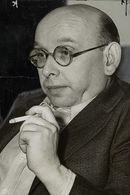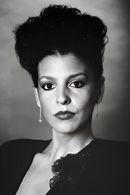Fulgencio Batista y Zaldívar, born Rubén Zaldívar on January 16, 1901, was a pivotal figure in Cuban politics, serving as both elected president and U.S.-backed military dictator. His journey to power began with the 1933 Revolt of the Sergeants, a pivotal event that toppled the provisional government of Carlos Manuel de Céspedes y Quesada. Following this coup, Batista seized the opportunity to appoint himself chief of the armed forces, donning the rank of colonel, and thus exerted control over the five-member "pentarchy," a collective head of state. Through a succession of puppet presidents, Batista maintained his grip on power until 1940, when he was elected President of Cuba on a populist platform.
During his initial tenure as president, Batista implemented the 1940 Constitution of Cuba and served until 1944. Following the conclusion of his term, Batista relocated to Florida, only to return to Cuba in 1952 to pursue the presidency once more. However, with electoral defeat looming, Batista orchestrated a military coup against President Carlos Prío Socarrás, effectively pre-empting the election and cementing his hold on power.
Please go ahead and provide the text you'd like me to rephrase, and I'll do my best to expand it while keeping new lines and formatting intact.
Fidel Castro's predecessor, Fulgencio Batista, regained power in Cuba with the backing of the United States government, which provided him with financial, military, and logistical support.
Batista responded to his reinstatement by suspending the 1940 Constitution and revoking most political liberties, including the right to strike, thereby curbing any potential dissent.
He aligned himself with the wealthiest landowners who controlled the largest sugar plantations, presiding over an economy that stagnated and exacerbated the already significant disparity between the rich and the poor in Cuba.
As a result, the majority of the sugar industry was eventually controlled by American interests, and foreigners owned approximately 70% of the arable land in the country.
Batista's repressive government then exploited Cuba's commercial interests by negotiating lucrative deals with the American Mafia, which dominated the drug, gambling, and prostitution industries in Havana, as well as with large U.S.-based multinational companies that were awarded lucrative contracts.
To quell growing public discontent, which was manifest in frequent student riots and demonstrations, Batista established stricter media censorship and utilized his Bureau for the Repression of Communist Activities secret police to carry out widespread violence, torture, and public executions.
These brutal actions claimed hundreds, possibly as many as 20,000, lives in 1957, as socialist ideas gained traction and became increasingly influential in Cuban society.
Batista's brutal suppression of dissent ultimately contributed to his downfall, paving the way for Fidel Castro's eventual rise to power and the Cuban Revolution.
Please provide the text you'd like me to rephrase, and I'll do my best to create a lengthy and detailed rewording while keeping the new lines intact for the person biography.
Fulgencio Batista, a pivotal figure in Cuban history, is the subject of a comprehensive Wikipedia article that has been meticulously crafted by a community of dedicated contributors. This article, licensed under the Creative Commons Attribution-ShareAlike 3.0 Unported License, is a testament to the power of collaborative knowledge-sharing.
As we delve into the biography of Fulgencio Batista, we find ourselves immersed in a rich tapestry of events that shaped the trajectory of his life and the course of Cuban history. Born on January 16, 1901, in Banes, Cuba, Batista's early life was marked by a strong sense of determination and a desire to succeed.
Despite facing numerous challenges and setbacks, Batista persevered, eventually rising through the ranks of the Cuban military to become a prominent figure in the country's political landscape. His military career was marked by a series of key events, including his role in the 1933 Cuban coup d'état, which led to the overthrow of President Gerardo Machado.
Batista's political ambitions continued to grow, and in 1940, he was elected as the President of Cuba, a position he held until 1944. During his presidency, Batista implemented a series of reforms aimed at modernizing the country's economy and infrastructure, including the establishment of a new constitution and the creation of a national university.
However, Batista's time in office was not without controversy, and he was eventually forced to flee the country in 1944 after a military coup led by Colonel Carlos Prio Socarrás. Despite this setback, Batista remained a powerful figure in Cuban politics, and he eventually returned to power in 1952, following a military coup that overthrew the government of President Carlos Prio Socarrás.
Batista's second presidency was marked by increased authoritarianism and corruption, leading to widespread protests and discontent among the Cuban people. In 1958, Fidel Castro's July 26 Movement, a communist-led insurgency, launched a series of attacks against Batista's government, ultimately leading to the overthrow of the regime and the establishment of a socialist government in Cuba.
Throughout his life, Fulgencio Batista remained a complex and controversial figure, with many regarding him as a symbol of Cuban authoritarianism and others viewing him as a champion of democracy and economic development. Regardless of one's opinion of Batista, his legacy continues to shape Cuban politics and society to this day.













